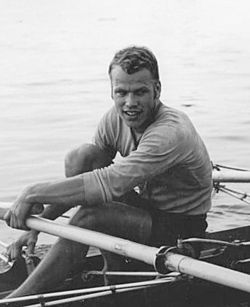You can help expand this article with text translated from the corresponding article in German. (February 2022)Click [show] for important translation instructions.
|
 Schmied in 1970 | |||||||||||||||||||||||||||||||||||||||
| Personal information | |||||||||||||||||||||||||||||||||||||||
|---|---|---|---|---|---|---|---|---|---|---|---|---|---|---|---|---|---|---|---|---|---|---|---|---|---|---|---|---|---|---|---|---|---|---|---|---|---|---|---|
| Full name | Hans-Ulrich Schmied | ||||||||||||||||||||||||||||||||||||||
| Born | 23 February 1947 (age 78) Meißen, Germany | ||||||||||||||||||||||||||||||||||||||
| Height | 1.87 m (6 ft 2 in) | ||||||||||||||||||||||||||||||||||||||
| Weight | 84 kg (185 lb) | ||||||||||||||||||||||||||||||||||||||
Spouse | Bärbel Bendiks | ||||||||||||||||||||||||||||||||||||||
| Sport | |||||||||||||||||||||||||||||||||||||||
| Sport | Rowing | ||||||||||||||||||||||||||||||||||||||
| Club | SC Berlin-Grünau | ||||||||||||||||||||||||||||||||||||||
Medal record
| |||||||||||||||||||||||||||||||||||||||
Hans-Ulrich Schmied (born 23 February 1947) is a retired German rower who specialized in the double sculls. In this event he won bronze medals at the 1972 and 1976 Olympic Games and finished in fifth place in 1968. [1] He also won one world (1974) and two European titles (1971 and 1973). [2] Schmied went to the 1978 World Rowing Championships on Lake Karapiro in New Zealand as a reserve but did not compete. [3] It was at those championships that he got closer to one of the female rowers whom she later married; Bärbel Bendiks was also present as a reserve. [4]
After retiring from competitions he worked as a rowing coach, particularly with Arno Bergmann, Erwin Krakau and Gerhard Rothe. [5]